Your Cart is Empty
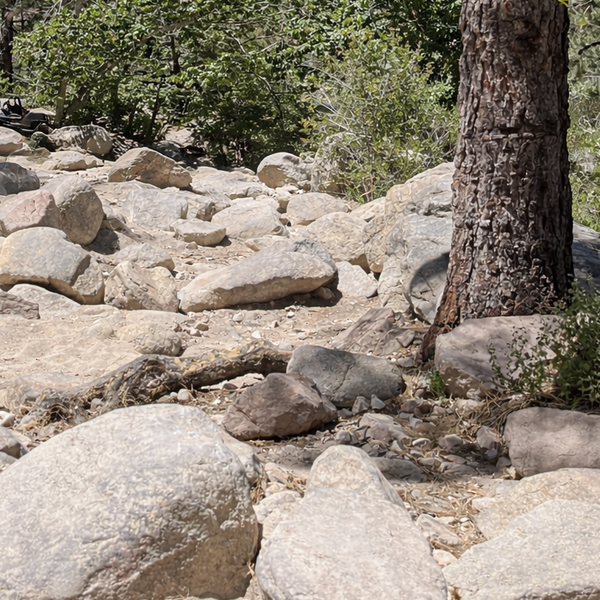
Shop By Vehicle:
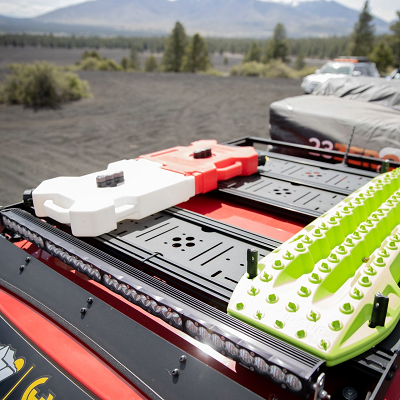
Roof Racks
Bed Racks
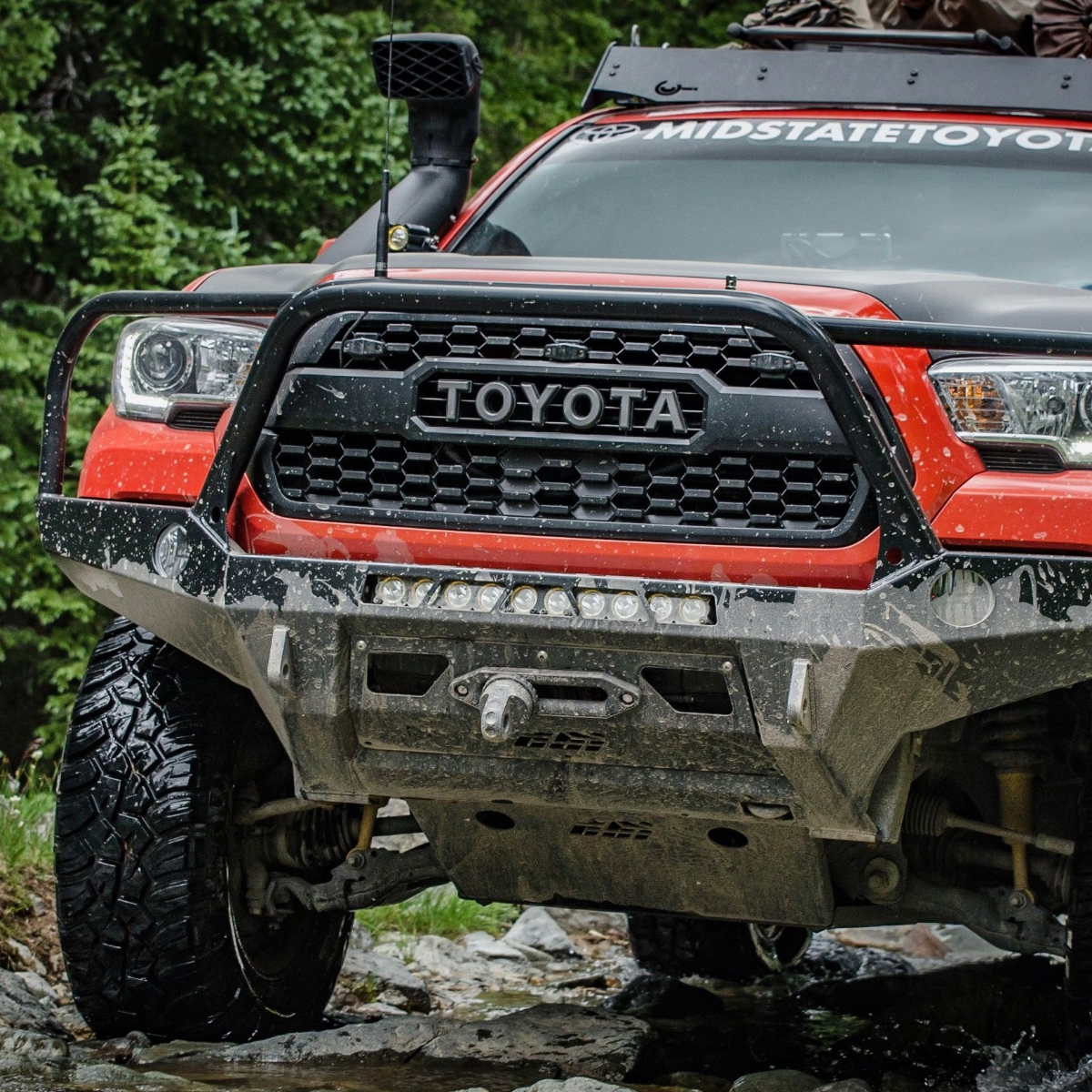
Front Bumpers
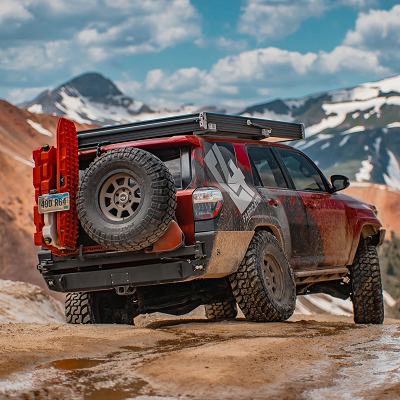
Rear Bumpers
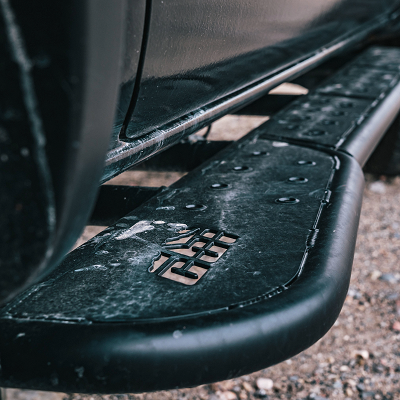
Rock Sliders
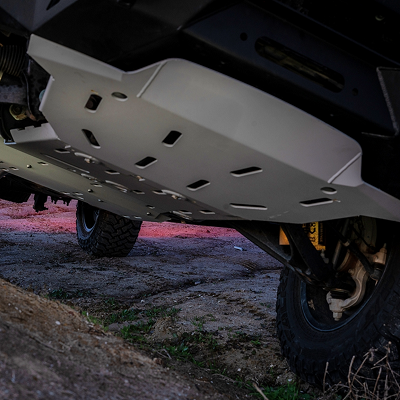
Skid Plates
March 04, 2024 7 min read
Struggling to choose the right skid plate material for your off-road adventures? You’re not alone. The aluminum vs steel skid plates debate centers on a simple yet pivotal question: do you want the lighter weight and corrosion resistance of aluminum or the superior strength and durability of steel? Within this article, we explore the pros and cons of each option, helping you pinpoint the perfect fit for your vehicle and your off-road challenges.
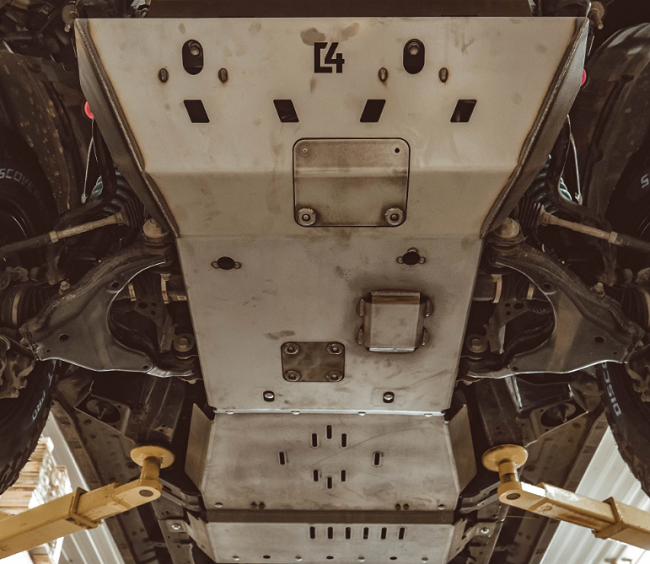
Don’t overlook skid plates; they should be the priority when considering aftermarket accessories for your vehicle. These protective shields serve as a barrier between the rough terrain and the vital components of your vehicle, safeguarding them from potential damage. They act as a protective layer for your vehicle against rocks, ruts, and uneven terrains often found off the beaten path. With skid plates, your Toyota Tacoma, Ford F150, Chevy Colorado, or any other make and model becomes more equipped for rugged terrains.
There are many top brands that offer skid plates including RCI Offroad, CBI Offroad, C4 Fabrication, Talons Garage, Asfir 4x4, Cali Raised LED, and more.
These brands all offer quality skid plates for many different vehicles and are sure to impress.
Skid plates come in various shapes and sizes, each designed to protect a specific component of your vehicle. You can choose from full skid plate kit, which provide comprehensive coverage for the engine, transmission, and transfer case, or opt for individual skid plates that protect specific areas of your vehicle. Such flexibility enables you to tailor your vehicle’s protection to your off-roading style and the terrains you typically encounter.
Aside from protection for the engine, transmission, and transfer case, skid plates are also offered for the rear differentials, a-arms, catalytic converters, gas tank, and shock guards.
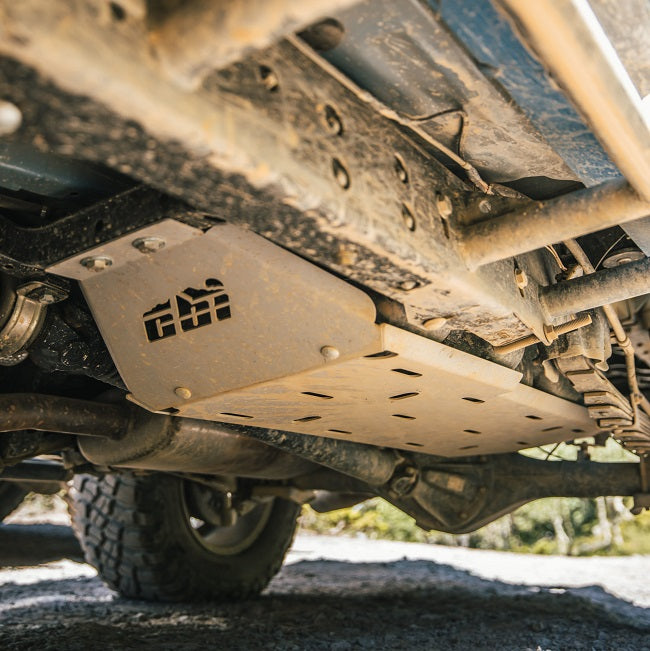
These options are available for most makes and models, enabling you to customize your vehicle’s protection as per your needs. Whether you opt for a full package or individual options, remember that the primary goal is to safeguard your vehicle’s vulnerable parts from potential damage.
The decision between steel and aluminum skid plates depends on several factors. Both offer distinct benefits and are suitable for different scenarios. Providing strength and durability, steel skid plates are a perfect choice for those who find themselves on more intense trails. Conversely, aluminum skid plates, known for their impressive corrosion resistance and lighter weight, are ideal for those seeking protection without significantly increasing their vehicle’s weight. Let’s examine in more detail the unique characteristics of each material.
For off-road enthusiasts who frequently tackle tough trails, steel skid plates are an excellent choice. They offer maximum strength, making them capable of absorbing harsh impacts and carrying a significant portion of your vehicle’s weight. A steel skid plate might add more weight to your vehicle, but for those whose primary concern is strength, this is a worthwhile trade-off.
Nonetheless, steel skid plates might not be the best fit for everyone. If you live in a region where roads are salted, you might want to think twice before opting for steel. Salt can cause steel to corrode over time. Therefore, for regions with salty roads or coastal areas, steel skid plates might not be the best choice unless they are regularly maintained and treated to prevent rust.
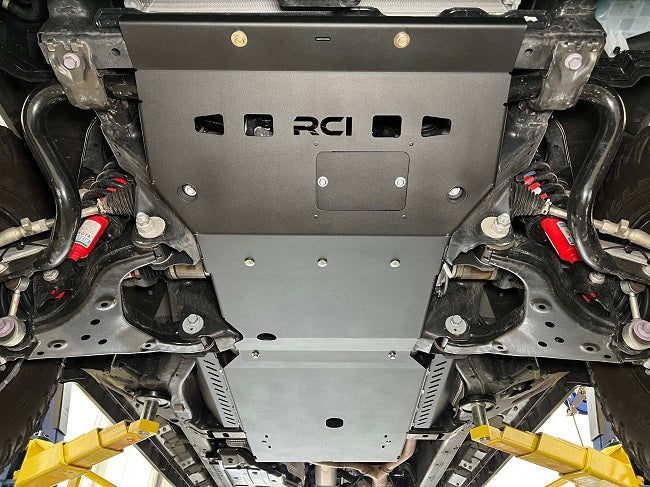
If you prefer a lighter option offering solid protection along with excellent corrosion resistance, consider aluminum skid plates. These plates are significantly lighter than their steel counterparts, making them ideal for off-roaders who want to protect their vehicle’s vital components without adding much weight. The lighter weight means your vehicle’s fuel economy is less likely to take a hit, making aluminum skid plates an eco-friendly option compared to steel alternatives.
These skid plates also shine in their ability to resist corrosion. This characteristic makes them a popular choice among off-roaders who live in areas where roads are salted during winter. However, it’s worth noting that while aluminum skid plates offer adequate protection for milder off-roading, they may not provide the same level of impact resistance as steel skid plates.
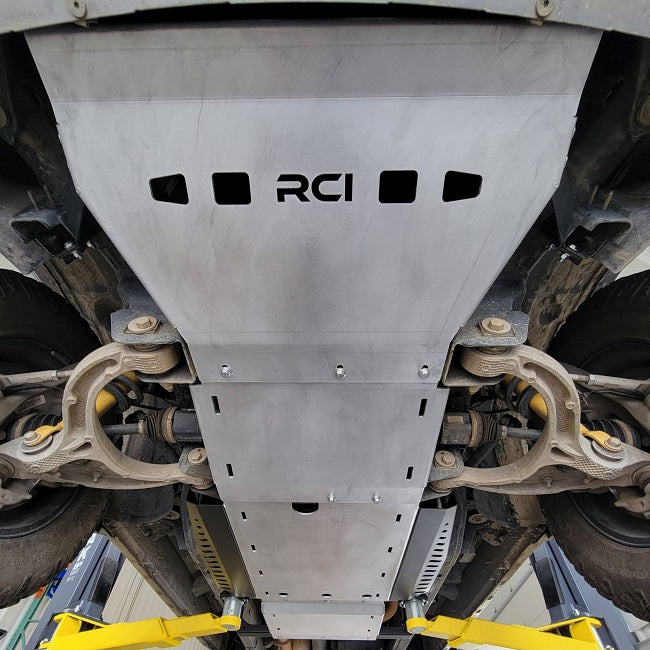
The weight of your skid plates can considerably influence your vehicle’s fuel economy. Steel skid plates, being heavier, can weigh down your vehicle, potentially decreasing its fuel efficiency. To save weight, this can be a concern if you’re planning long off-road trips or if your vehicle is already underpowered.
Conversely, due to their lighter design, aluminum skid plates are unlikely to significantly impact your fuel economy. If your vehicle is a daily driver and fuel efficiency is a top priority, aluminum skid plates could be your best bet. However, it’s important to remember that while weight savings can benefit fuel economy, the purpose of a skid plate is to provide protection. The decision should ultimately balance the need for protection and the impact on fuel economy.
In terms of durability and off-road performance, both steel and aluminum skid plates perform well. Steel skid plates, known for their strength and impact resistance, are excellent for off-roading where you might come in contact with rocks. They can handle the wear and tear of harsh trails, protecting your vehicle’s undercarriage effectively.
On the other hand, aluminum skid plates provide adequate protection for milder trails and can handle the occasional bumps and dips without compromising their structural integrity. This makes aluminum skid plates a popular choice among off-roaders who explore more moderate trails.
For corrosion resistance, the material type and its treatment are crucial factors. Steel skid plates must be painted or powder-coated to resist corrosion. This additional treatment not only enhances the plate’s durability but also adds to its aesthetic appeal. However, it’s essential to regularly check for any paint chips or exposed steel to prevent rust.
In contrast, aluminum skid plates are naturally corrosion-resistant and can be left raw or powder-coated for added protection. Powder coating improves their durability and gives them a sleek, polished look Aluminum skid plates can withstand exposure to elements better than steel, making them a great option for those who prefer low-maintenance accessories.
The choice of skid plate materials significantly depends on your location and the terrains you commonly traverse. Steel skid plates are ideal for rocky terrains due to their superior strength and impact resistance.
In contrast, aluminum skid plates are suitable for milder trails and areas with road salt exposure, thanks to their corrosion resistance and lighter weight compared to aluminum skids.
If you frequently traverse rocky terrains, steel skid plates should be your go-to option. These robust plates are designed to absorb harsh impacts and efficiently slide over rocks, reducing the likelihood of getting caught on sharp edges. They offer maximum strength, making them an economical option for serious off-roading on rocky landscapes.
Steel skid plates, made from high-quality steel, are engineered to provide better strength in the most common strike zones, protecting vulnerable components from rocks and uneven terrain. Their deflection power is strong enough to withstand substantial impacts, such as sudden drops that can severely damage a vehicle’s undercarriage during off-road travel.
For milder trails or areas where road salt is used, aluminum skid plates are a better option. Despite their lighter weight, they perform reliably and withstand wear and tear, illustrating their adequacy for less rough terrains. Even in areas where road salt is an issue, aluminum skid plates maintain their integrity, making them suitable for use in areas where salty roads are prevalent.
Aluminum skid plates are a good choice for occasional off-roaders who are not constantly in rocky conditions, offering a good baseline of protection with minimal weight gain. The durability of aluminum skid plates can be sufficient for moderate trail use, and they are commonly chosen for their lighter weight and corrosion resistance, especially by those who prioritize fuel economy.
The decision between aluminum and steel skid plates is influenced by individual needs and circumstances. If strength and resilience are your top priorities, and you’re not overly concerned with weight or possible corrosion, steel skid plates might be your ideal choice. However, if you’re concerned about the weight of your vehicle or live in an area where road salt is used, aluminum skid plates might be the better choice for you.
Finally, the selection between aluminum and steel skid plates hinges on your personal preferences, intended usage, budget, and environmental conditions. Remember, the best skid plate isn’t necessarily the most expensive or the strongest, but the one that suits your specific needs and offers the best protection for your vehicle.
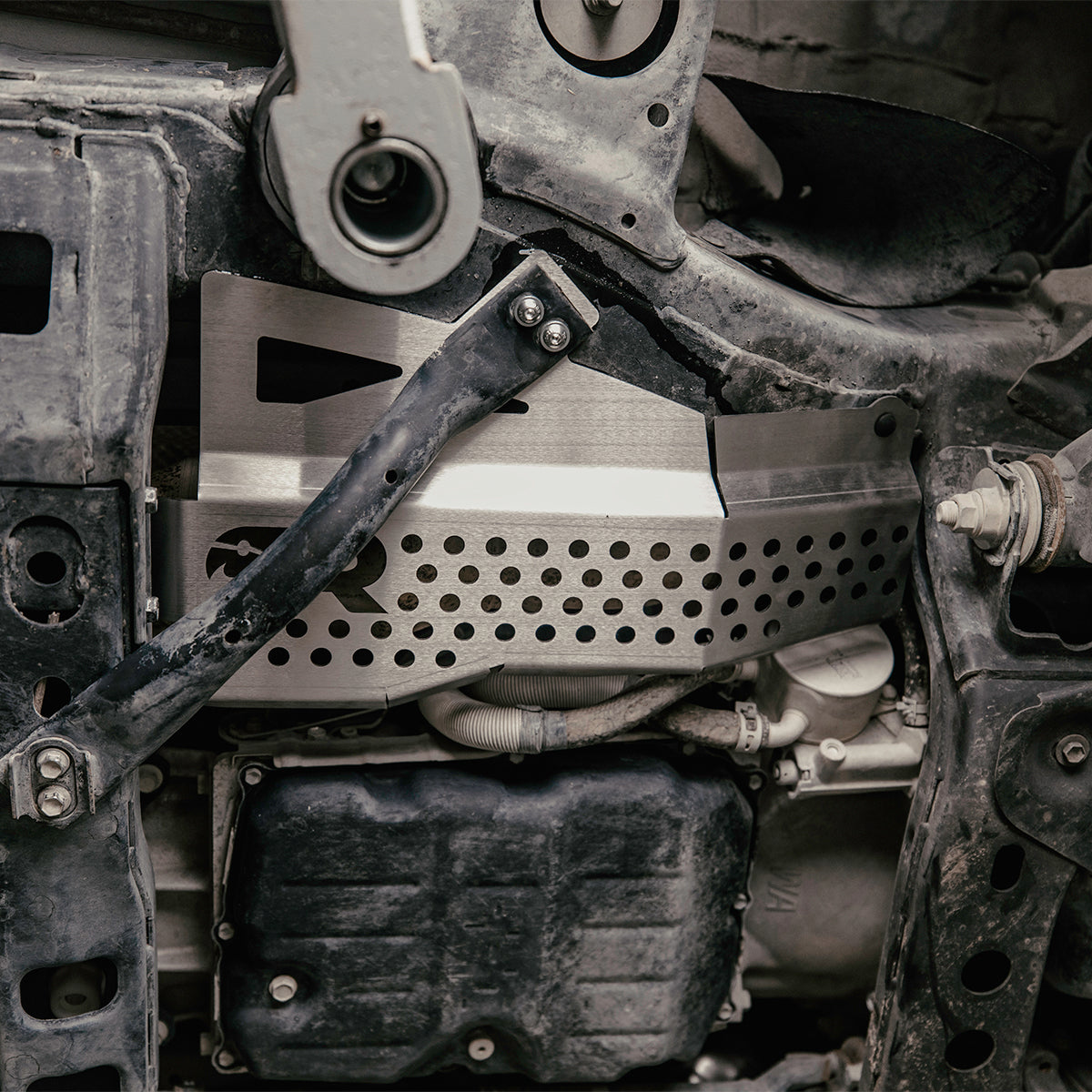
In conclusion, both aluminum and steel skid plates offer unique benefits, making them suitable for different off-roading scenarios. Steel skid plates are known for their strength and are ideal for rocky terrains, while aluminum skid plates offer corrosion resistance and are lighter, making them suitable for milder trails. The choice between the two depends on your individual needs, intended use, and the environmental conditions you face. Whichever material you choose, remember that the goal of a skid plate is to provide the best possible protection for your vehicle during your adventures.
Aluminum skid plates may work for occasional encounters with rocks, but heavy use and time may cause them to not hold up as well as steel skid plates.
For the best protection, consider aluminum skid plates that are at least 1/4 inch thick.
The most important skid plates for your vehicle depend on what components are exposed and the terrain you explore. Protection of the engine, transmission, and transfer case should be a top priority. The fuel tank is another crucial component to protect.
Skid plates are meant to protect your vehicle from potential damage during off-roading by acting as a barrier between rough terrains and the undercarriage of your vehicle. They are designed to safeguard vital components.
Comments will be approved before showing up.
Sign up to get the latest on sales, new releases and more …